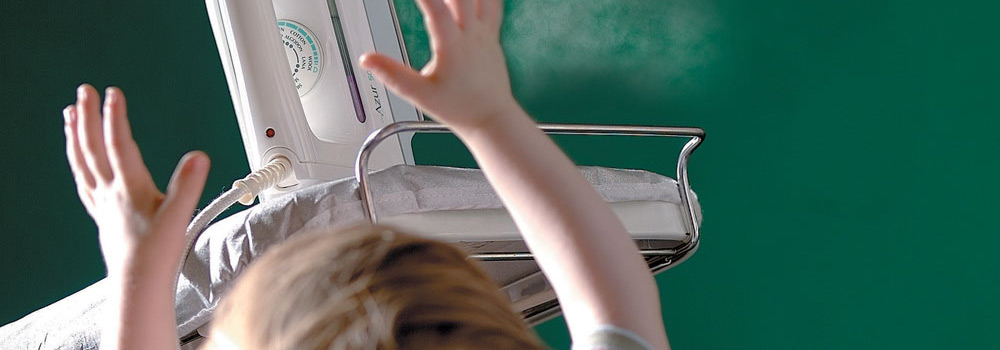For babies the biggest danger is rolling off the edge of a bed, or changing surface. For toddlers it is more about falling from furniture or down stairs.
PREVENTION:
Make sure baby cannot roll off any surfaces, put pillows around them. Do not put a bouncing cradle or car seat on a surface where they could wriggle off.
Use stair gates for toddlers. Make sure balconies are locked and fit restrictors and safety locks to windows.
WHAT TO DO:
If your child has a serious fall dial 999.
Babies and toddlers can easily swallow, inhale or choke on small items like balloons, peanuts, buttons or plastic
toy pieces or strings or cords.
PREVENTION:
Check on the floor and under furniture for small items. Find out more about CPR (a first aid technique that is a combination of rescue breaths and chest compressions. Sometimes called the ‘kiss of life’).
WHAT TO DO:
If your child is choking act immediately and calmly. Make sure you do not push the object further down the throat. Encourage your child to cough. Use back blows, if they become unconscious call for help (do not leave your child alone), start CPR, call 999.
www.redcrossfirstaidtraining.co.uk
Domestic fires are a risk to all children. Never let a child play with lighters, matches or candles. Burns from hair straighteners and household appliances are common. Hot drinks cause burns and scalds and bath water which is too hot is the biggest cause of fatal accidents to under fives.
PREVENTION:
Get a bath thermometer. Think about your home. Use oven guards, fireguards and electrical socket covers.
WHAT TO DO:
If your child has a minor burn run under cool water for 20 minutes. Do not apply butter or any fatty substance. Cover loosely with cling film or a clean plastic bag. Take your child to A&E if the burn is severe.
Glass causes serious cuts with many children ending up in
A&E.
PREVENTION:
Do not leave drinking glasses on the floor. Make sure glass
bottles are up high.
WHAT TO DO:
If the cut is not serious bathe the area, make sure there
is no glass left and cover with a clean non-fluffy cloth.
If the cut is serious, is bleeding a lot or has a piece of
glass under the skin (maybe they trod on some glass) go
to A&E.
Many children drown, often in very shallow water. It happens in the bath, in garden ponds, paddling pools and water butts.
PREVENTION:
Supervise children near water at all times. Use a grille on ponds and fill in a garden pond to use as a sand pit. Learn to swim.
WHAT TO DO:
Get your child out of the water. Try to get them to cough up any water. If they are not responding call 999.
Poisoning from medicines, household products and cosmetics are common.
PREVENTION:
Lock all chemicals, medicines and cleaning products away.
WHAT TO DO:
Find out what your child has swallowed and take it with you to A&E.
Window blind cords and chains can pose a risk for
babies and children who could injure or even strangle themselves on the hanging looped cords.
PREVENTION:
-
Install blinds that do not have a cord, particularly in a child's bedroom.
-
Do not place a child's cot, bed, playpen or highchair near a window.
-
Pull cords on curtains and blinds should be kept short and kept out of reach.
-
Tie up the cords or use one of the many cleats, cord tidies, clips or ties that are available.
-
Do not hang toys or objects that could be a hazard on the cot or bed.
-
Don't hang drawstring bags where a small child could get their head through the loop of the drawstring.
WHAT TO DO:
Untangle child, contact the emergency services and start CPR.
Source: RoSPA

